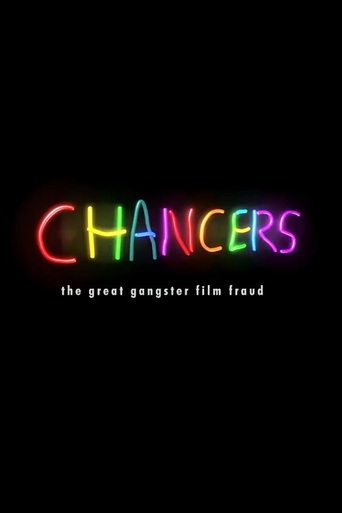SanEat
A film with more than the usual spoiler issues. Talking about it in any detail feels akin to handing you a gift-wrapped present and saying, "I hope you like it -- It's a thriller about a diabolical secret experiment."
Robert Joyner
The plot isn't so bad, but the pace of storytelling is too slow which makes people bored. Certain moments are so obvious and unnecessary for the main plot. I would've fast-forwarded those moments if it was an online streaming. The ending looks like implying a sequel, not sure if this movie will get one
Roy Hart
If you're interested in the topic at hand, you should just watch it and judge yourself because the reviews have gone very biased by people that didn't even watch it and just hate (or love) the creator. I liked it, it was well written, narrated, and directed and it was about a topic that interests me.
Aneesa Wardle
The story, direction, characters, and writing/dialogue is akin to taking a tranquilizer shot to the neck, but everything else was so well done.
l_rawjalaurence
The subtitle of this documentary: "The Great Gangster Fraud" is a bit of a misnomer. Ben Lewis's film focuses on a group of small- time rogues - a bankrupt Jordanian financier, an Irish actor and would-be tycoon, a Manchester-based architect and two of their acolytes - as they concoct an ambitious plan to make a £20m. film with big stars, fabulous locations, and all the publicity trimmings.There are only a few snags: they haven't any money, their publicity materials are shoddy (with spectacular spelling errors such as writing Michael Caine's name as Michael Kane), and they haven't the first clue how to film a script. What they do possess, however, is a certain chutzpah which enables them to obtain £80K. out of Britain's government through fraud. The HM Tax Office spends the next two or three years pursuing them in an attempt to recover it.Narrated as a would-be gangster flick by Tony Carling, we are led to believe that these fraudsters see themselves as latter-day Krays, bucking the system and leading the high life. They engage an Essex- based director (Paul Knight) with experience of working within that environment. Yet their strategies are so inexplicably amateurish that we end up wondering how they got away with it in the first place. Perhaps the subject-matter would have been better suited for a remake of late Fifties Rank comedies such as TOO MANY CROOKS (1959).The material has a certain macabre potential, but the documentary is at least half an hour too long, with too much time given over to testimonies from those associated with the entire misbegotten project. Perhaps director Ben Lewis might have been better advised to treat the whole affair as a black comedy.
paul2001sw-1
The adage says, to make a small fortune, start with a large one. Bashir al-Issa came from a rich family and started out in property development: his first business deals were worth tens of millions of pounds. After he went bankrupt, he tried making a smaller number of millions by claiming tax credits and VAT refunds from the British government as a film producer, although in fact he was producing nothing. When the authorities got wind of his exploits, he tried covering his tracks by actually making some movies, albeit extremely low budget efforts. It didn't work and he was convicted of fraud. 'Chancers: The Great Gangster Film Fraud' tells this story, which is entertaining but the documentary makes some odd choices. Bashir was Iraqi, his chief co-plotter was a Northern Irish actress. But the film presents the tale as if it was a story of London gangsters. Now, the film that Bashir actually made was about London gangsters, and some of the people who actually made the movie had connections to this world. But they had nothing to do with the criminality here, which was entirely a white collar crime executed by people whose backgrounds were anything but Cockney. Secondly, while the story is both amusing and shocking in its own way, the sums involved were small compared with the fortune that Bashir had already lost in his first career. The story of how someone with no track record gets to attempt to undertake multi-million pound development projects is arguably more interesting than the story of how, having failed, he then attempt to scam the Inland Revenue. The story of how low budget films get made is interesting: but that's only linked to the criminality by happenstance. Ultimately, there's interesting material here, but this is a lazy documentary.

